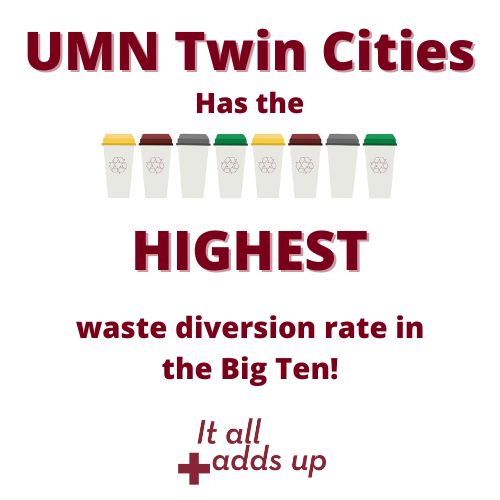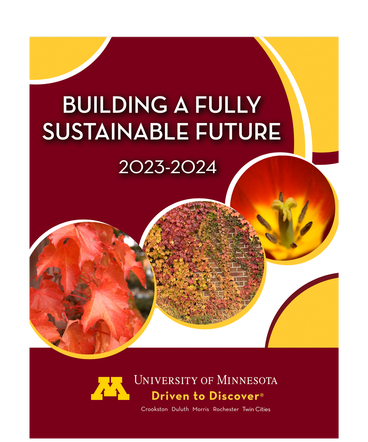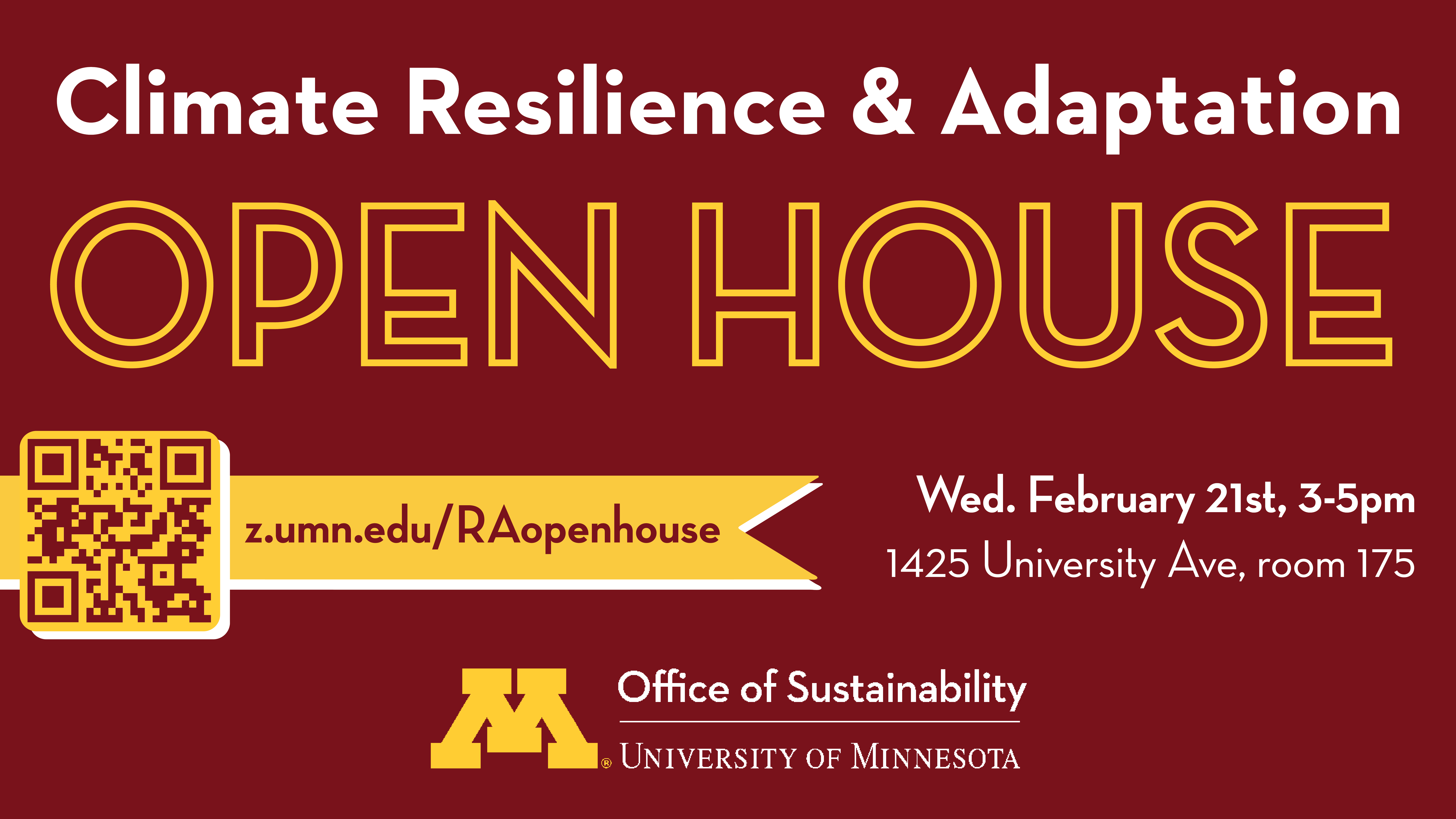The University of Minnesota Twin Cities has the HIGHEST Waste Diversion Rate in the Big Ten!
UMN Twin Cities recovers more than 55% of waste from entering trash landfills.

Waste diversion is the process of diverting and redirecting waste from landfills. Waste Recovery Services provides collection and disposal services for the Twin Cities Campus. Their mission is to recover material resources from the solid waste stream and prevent the disposal of hazardous materials.
The Environmental Protection Agency (EPA) defines waste diversion as “The prevention and reduction of generated waste through source reduction, recycling, reuse, and composting. Waste diversion generates a host of environmental, financial and social benefits, including conserving energy, reducing disposal costs, and reducing the burden on landfills and other waste disposal methods.”
Our waste diversion rate represents how much of the total waste produced on campus is reused, recycled, or composted rather than incinerated or landfilled. It also includes some preliminary data on source reduction. Programs that fall under Waste Recovery Services include the Recycling Program, the Organics Program, Debris Management, The ReUse Center, the Hazardous Materials Program, and other programs and services dedicated to responsible waste management on campus. One contributor to the increase over the previous year was due to including more of our waste in the calculations this year.
The Big Ten Conference is a group of the nation's top 14 public universities that has come together to form standards for intercollegiate athletics. “The conference established itself as the preeminent collection of institutions in the nation, where the pursuit of academic excellence prevailed as the definitive goal.”
The Big Ten universities are the Universities of Illinois, Indiana, Iowa, Maryland, Michigan, MINNESOTA, Nebraska, and Wisconsin, along with Michigan State, Northwestern, Ohio State, Penn State, Purdue, and Rutgers.
Among these Big Ten institutions, the University of Minnesota has the highest waste diversion rate!
Thanks to all who help achieve this great sustainable accomplishment! Check out the Waste Dashboard



